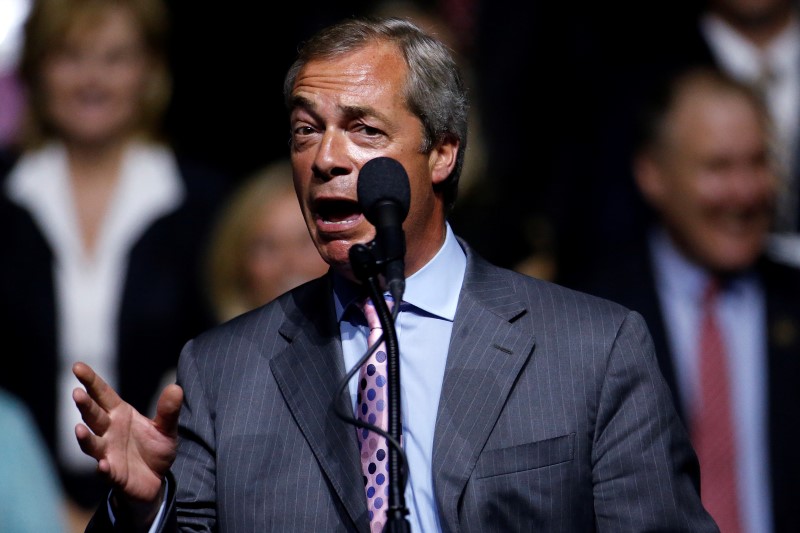Investing.com -- Sterling surged on Monday as Brexit Party head Nigel Farage said his party won't contest any seats currently held by the Conservative Party at the general election on Dec. 12.
The move increases the chances of the Conservative Party gaining a majority at the polls, and consequently implementing the EU withdrawal agreement secured last month by Prime Minister Boris Johnson.
"We now have a Leave alliance, albeit we've done it unilaterally,” Farage told a party meeting. “This prevents a second referendum from happening and that to me today is the single most important thing in our country."
The Conservatives currently hold 317 of the 655 seats in the House of Commons. Although they hold a commanding lead in national opinion polls, the first-past-the-post electoral system means that that lead might still not be enough to guarantee a majority. While the major opposition parties all have differing views and policies on Brexit, they all want either to revoke the initial decision to leave, or to hold a second referendum.
The pound jumped around half a cent against both the euro and dollar on the comments, while the yield on the 10-year Gilt rose some three basis points to 0.80%.
By increasing the likelihood of a clear victory for the Conservatives, Farage's comments remove some of the political uncertainty discount on U.K. assets, even though a Conservative victory would do little if anything to settle the U.K.'s long-term relationship with the EU, its biggest trading partner.
The effects of chronic uncertainty over Brexit were visible earlier Monday when the Office for National Statistics announced that the U.K. economy grew at its slowest annual rate since 2010 in the third quarter of this year, with business investment faring particularly badly.
By refusing to stand candidates against the Tories, Farage’s party makes it easier for sitting members of parliament to resist challenges from the pro-Remain Liberal Democrats in areas such as southwest England and London.
“There were huge numbers of Brexit supporters out in the country who feared that if Nigel Farage and The Brexit Party did stand in every single seat, that they could well be the Party that caused Brexit not to happen at all,” Jonathan Isaby, editor of the website Brexit Central, told Sky News.
However, it also makes it easier for opposition parties to define their enemy as they go campaigning, underlining that a vote aimed at delivering Brexit will also be a vote for a range of Conservative policies that are less popular.
“A vote for Boris Johnson’s Conservatives is a vote for Nigel Farage’s politics,” tweeted Keir Starmer, Labour’s Brexit spokesman.
Aside from Brexit, Farage has in the past argued for the U.K. to reform its healthcare system along insurance-based lines. Such suggestions have previously generated intense resistance.
